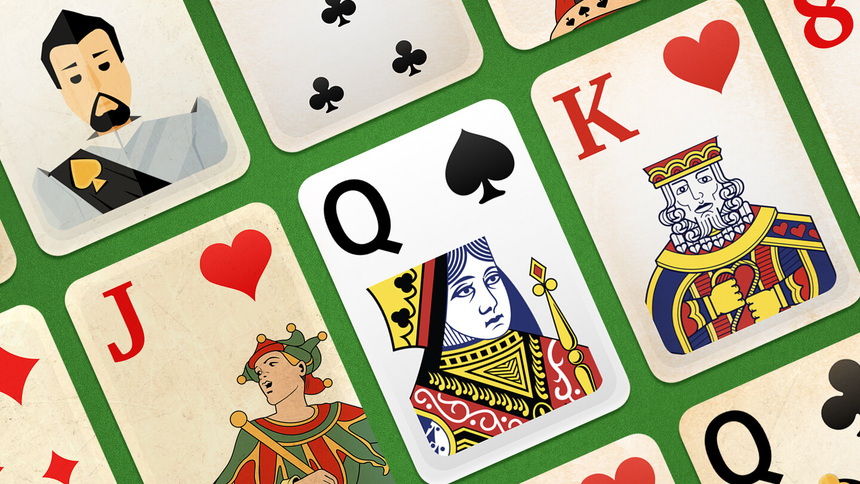Hearts: A Brief History of the Card Game

Hearts is a classic trick-taking card game that’s loved for its perfect blend of luck, skill, and friendly competition. Although its exact origins remain unclear, it likely evolved from various European games focused on avoiding certain cards. First mentioned in the late 19th century, Hearts has a long history with many exciting variants, each offering unique challenges and strategic depth. Players continue to enjoy Hearts today because it sharpens the mind, creates memorable moments with friends, and always keeps you coming back for another round.
Possible Origins of Hearts
Though its exact origin is unclear, Hearts is generally believed to be inspired by earlier European trick-avoidance card games, particularly:
- Reversis (Spain and France, ~1750): players avoided certain penalty cards.
- Polignac (France, 18th century): similar structure involving penalty tricks.
- Four Jacks (19th century, Europe): players avoided tricks containing Jacks, notably the Jack of Spades.
Early History of Hearts in America (1880s)
The modern game of Hearts first appeared in the United States around the 1880s:
- First documented in the Standard Hoyle (1887), describing it as "a most pleasant game, highly provocative of laughter".
- Initially, it was a simple no-trump game aiming to avoid capturing heart cards in tricks.
- Early variations such as "Double or Eagle Game" assigned varying chip values to heart cards.
Development of Popular Variants
Hearts evolved significantly with the introduction of several notable variations:
Black Lady (Discard Hearts) – 1909
- Introduced the Queen of Spades (♠Q) as a major penalty card (worth 13 points).
- Included the rule of passing unwanted cards to other players at the start of a round.
- Eventually, it became the dominant variant, especially in the United States.
- The popular "Shoot the Moon" strategy emerged later.
Black Maria – Britain (~1939)
- British variant with additional penalty cards: Ace of Spades (♠A, 10 points), King of Spades (♠K, 7 points), and Queen of Spades (♠Q, 13 points).
- Typically played with three players.
- Passing cards usually occurs to the right.
Other Fun Variants of the Hearts Game
As Hearts grew in popularity throughout its history, creative versions appeared around the world, adding new rules and twists to the classic format. Here are some of the most interesting:
- Auction Hearts: Players bid to choose which suit becomes the penalty suit.
- Black Jack: Adds the Jack of Spades as a 10-point penalty card.
- Cancellation Hearts: Great for large groups — identical cards cancel each other out.
- Chasse Coeur: A challenging version where players avoid Queens and hearts, with a rare move called Générale to collect all penalties.
- Domino Hearts: Players who can’t follow suit must draw cards until they can play.
- Greek Hearts: A tougher version — ♠Q is worth 50 points, A♥ is worth 15!
- Heartsette: Includes a face-down “widow” pile won by the first trick-taker.
- Joker Hearts: Adds Jokers that can be played anytime but don’t win tricks or carry points.
- Omnibus Hearts: Introduces bonus cards like the ♦J or ♦10 that lower your score.
- Partnership Hearts: Played in teams of two. Players combine scores and try to "Shoot the Moon" together.
- Spot Hearts: Each heart has a different value (e.g. ♥9 = 9 points), changing how you plan moves.
- Royal Hearts: Each Queen has a unique effect, shaking up the strategy.
These variations add variety, challenge, and fun for those who want more than the classic version — and show just how flexible and creative the world of Hearts can be.
Popularity in the Digital Age
Hearts has become truly popular during the digital era, especially with the spread of personal computers and the internet:
- Microsoft Windows Inclusion:
Hearts was bundled as a standard game in Windows. This integration made Hearts easily accessible to millions of users, greatly expanding its global player base and turning it into a widely recognized casual pastime. The history of Hearts on Microsoft devices ended when the game was removed as a pre-installed feature starting with Windows 8 in 2012, though it remained available as a separate download.
- Online Gaming Platforms:
The widespread availability of online gaming platforms introduced Hearts to an entirely new audience. These sites typically offer the popular Black Lady variant, simply referring to it as Hearts. Such digital exposure has helped sustain interest in the game well into the 21st century.
- Mobile Gaming:
With the rise of smartphones and mobile apps, Hearts has become even more accessible. Players can enjoy quick games anywhere, increasing its appeal among users looking for short breaks during commutes or leisure time.
- Social Interaction and Multiplayer:
Online multiplayer platforms allowed players worldwide to compete against each other or against computer opponents, making Hearts not only a way to pass time but also to socialize and compete globally.
Built on a long and evolving history, Hearts remains popular around the world today thanks to its appealing mix of strategy, social interaction, and easy-to-learn gameplay. It helps sharpen your mind, lets you relax with friends, and offers endless replayability, making it a card game players return to again and again.


